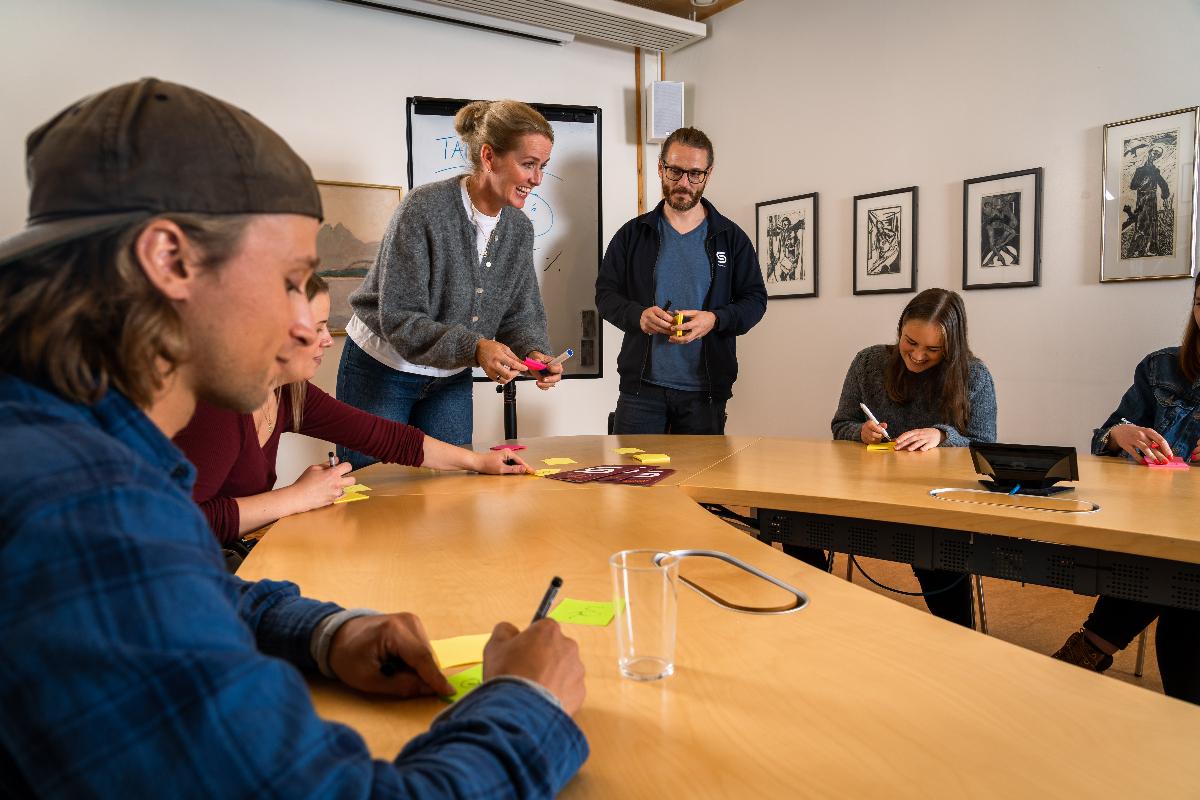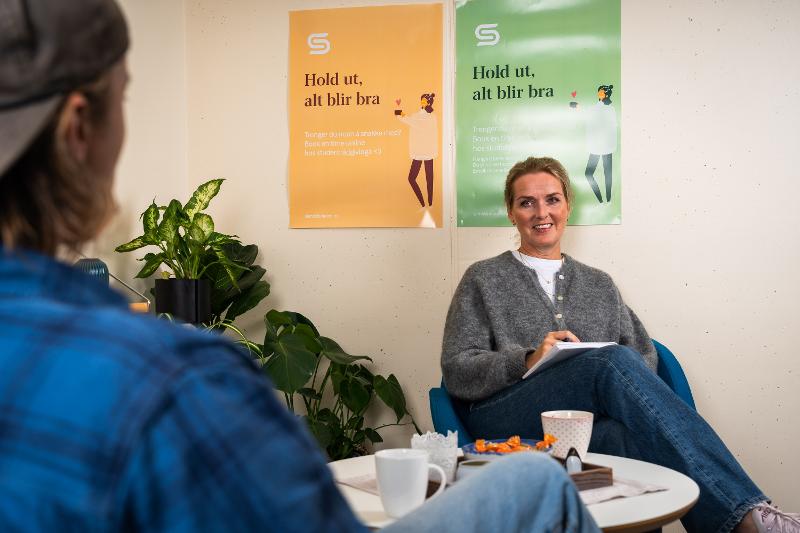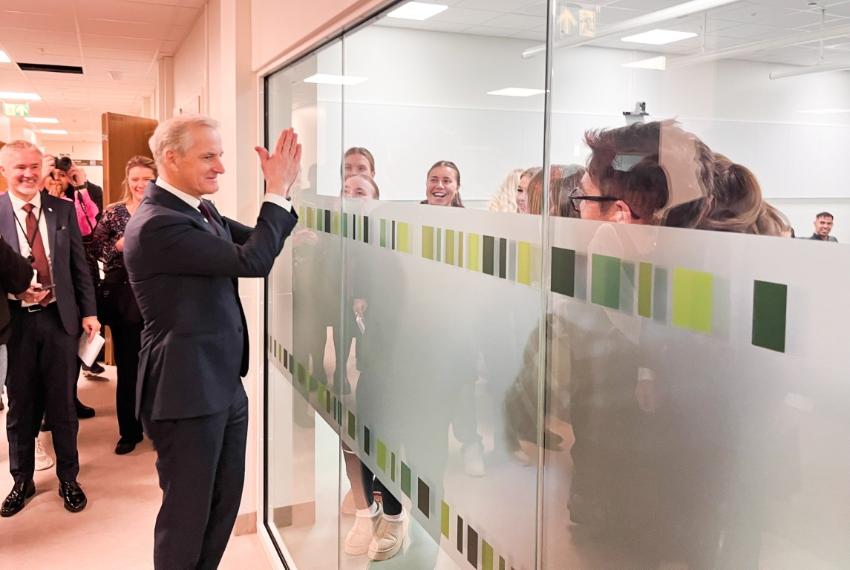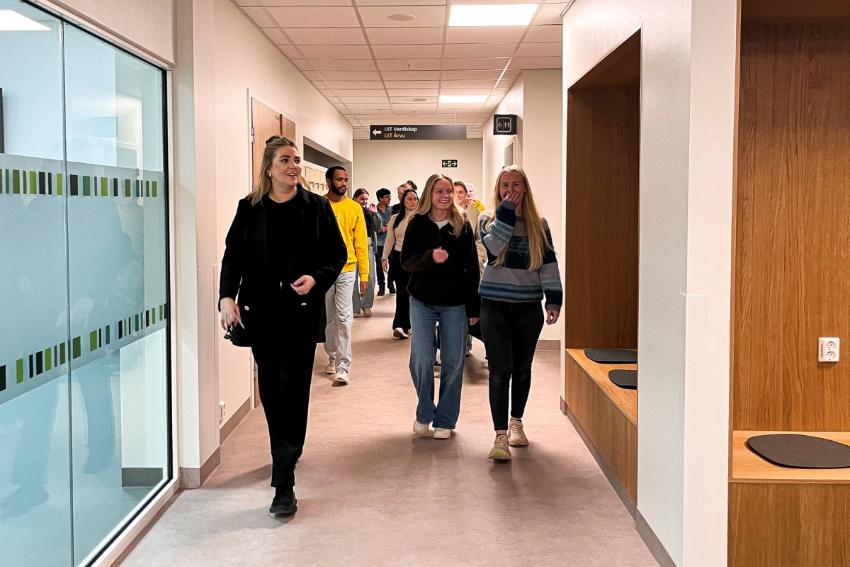Can you handle the pressure? 7 tips for effective stress managment
Preparation and setting realistic goals are essential for effectively dealing with stress around exams. Here are the best tips from the Student Advisory Service at Samskipsnaden at UiT.

For many students the exam period can be a challenging time, and the experience is differentfor everyone. Some struggle with focus before exams while others have never experienced an exam.
– Therefore, the Student Advisory Service offers free counseling where students can talk about anxiety, depression, stress, and other factors affecting their daily lives. It often helps to talk to someone that can see your situation from the outside, says Bente Høiseth, head of the student advisory service.
Make the exam period bearable
To manage your nerves, it's crucial to be well-prepared and rest «actively». Avoiding stress is not optimal. Instead, you should aim to reduce the stress to a manageable level and view it as driving force to achieve the goals you set.

– I usually advise students to make the exam period manageable, don't stop doing what you usually do that is good for you, says Høiseth.
If you are studying alone, you might end up feeling like you are "falling behind" or not understanding the subject. Then, it's essential to remember that you are not alone. Focus on lectures, discuss topics with fellow students, and be present on campus.
Study smart
We all depend on our smartphones, and they can significantly affect us.
When we learn new things, our brain needs time to "archive," meaning to store it in places that allow us to retrieve it on the day of the exam.
How to master exam stress
- Don't be alone, be on campus and talk with fellow students.
- Focus on what is covered in the lectures.
- Reduce screen time.
- Active rest such as exercise, meditation, a quick shower is just as important as sleep.
- Test yourself in relation to the syllabus.
- Don't study late in the evenings.
- Set realistic goals that are small enough for you to achieve
– On average, it takes 24 minutes to regain concentration after checking our mobile phone. Therefore, we should reduce screen time and other distractions, says Høiseth.
Active rest is as important as sleep for "archiving" what we've learned. Sometimes, it's just about taking a walk or listening to music. When we are on the bus, we tend to pick up our phones. It's a perfect opportunity to just leave the phone in your pocket and let your thoughts wander a bit, look out the window, and just be present.
– It's important to reflect on life outside studies, not just when you're in front of your books or the computer. Test yourself in relation to the syllabus, don't study late at night, and set small realistic goals that you can accomplish.
Exam Course
The Student Advisory Service and the Exam Service offer joint courses where students learn about stress management techniques and software for the exams. The course is conducted by Høiseth and Christopher Olsen from the Exam Service at UiT. The collaboration between these two services was formed after the pandemic when they realized that some students

had never experienced a real exam. – We try our best, but it's challenging to reach students with information about the courses, says Høiseth.
Video
To reach more people, the exam service has created an information video "How to Take a Digital School Exam", which provides an overview of the process from preparation to submission of the exam. The video also includes references to useful websites, so students can easily get more detailed information about the process. Olsen believes the video makes it easier for the Exam Service to reach students.
– We hope that the practical aspects of the exam will be as unproblematic and stress-free as possible, says Olsen.
Summary
- Make the exam period manageable.
- The Student Advisory Service offers free counseling, click here to read more.
- After the pandemic, a course was created for the "corona cohort" who had never taken an exam.
- The course contains both psychological tips and practicalities around the exam period.
- The Exam Service has made a video, watch it here.
Olsen and Høiseth encourages students to use the available resources and courses from the Student Advisory Service and the Exam Service at UiT to manage the exam period in the best possible way. With a focus on stress management and good preparations, the goal is to make the exam period as problem-free and stress-free as possible. By using these tips and strategies, students can have a better exam experience.
The summary is created by the AI tool ChatUiT and quality assured by the Communication Section at UiT.



